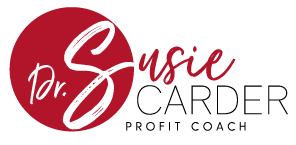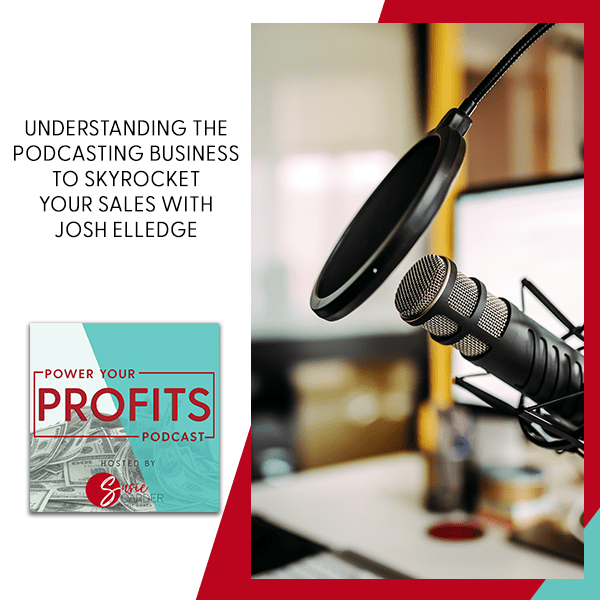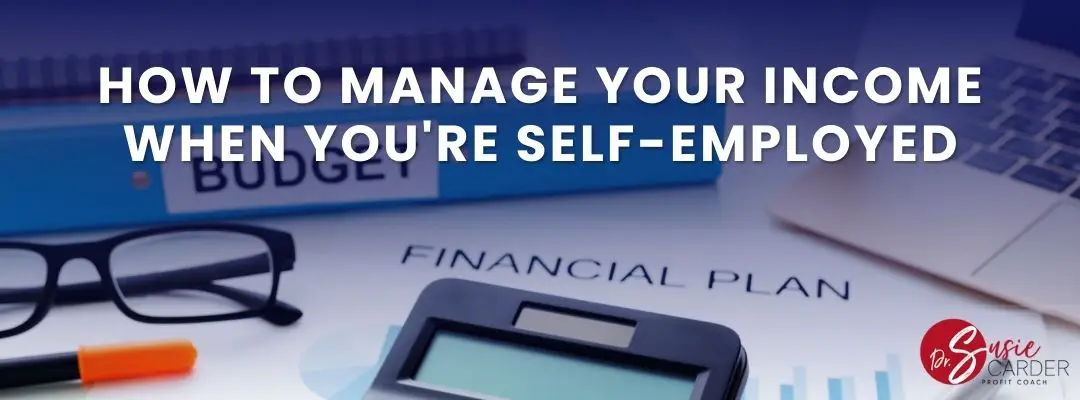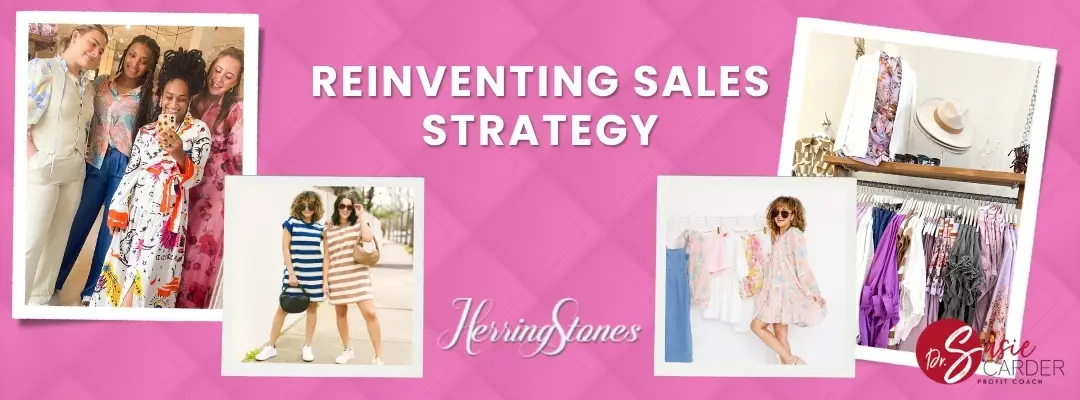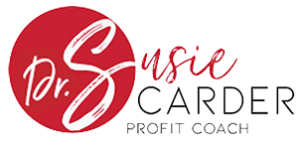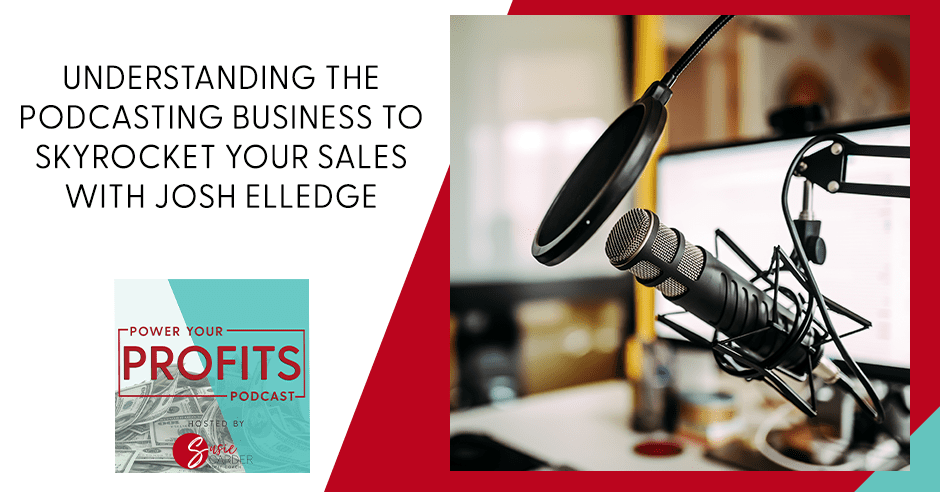
Having a business requires more sales than expenses. If you do not have enough sales, you will fail to achieve your personal goals and eventually lose your business. Learn how to skyrocket your sales in this episode as Josh Elledge discusses the key factors and tips on how business owners can thrive. Josh launched UpMyInfluence.com to help agencies, consultants, coaches, and other high-ticket B2B service providers skyrocket their sales. He shares that businesses can leverage podcasting. Listen and find out how podcasting can affect businesses!
—
Watch the episode here
Listen to the podcast here
Understanding The Podcasting Business To Skyrocket Your Sales With Josh Elledge
Our guest is Josh Elledge. You know how I love to share my secret weapons with you. Josh launched UpMyInfluence.com to help agencies, consultants, coaches, and other high-ticket business-to-business service providers skyrocket their sales. He takes six-figure businesses and turns them into seven-figure businesses with no advertising. It’s all referral-based. He’s a keynote speaker, syndicated newspaper columnist to over 1.1 million readers, and appears on 75 TV stations. All told, Josh has appeared in more than 2,000 media outlets. Get ready. Hold on. We’re going to talk about money, strategy and systems. Welcome my guest, Josh Elledge.
—
I’m so excited, Josh, that you’re here with me. Josh owns UpMyInfluence. I’m a client of Josh’s. I always tell you I’m bringing you my badass friends, so I’m bringing you those that I am in business and working with. Josh, we did your bio but let’s share from your point of view and give them the badass list. Why should we listen to you and pick attention to you out of all the noise that’s out there? Give me those CliffsNotes.
It’s because I’m one of Susie’s secret weapons. That’s why and that’s all I have to say. Here’s what I’m known for. This is my second seven-figure company. In SavingsAngel, we built up over $6 million to $7 million worth of revenue with zero paid ads. The Founder of Geek Squad said, “Advertising is the tax you pay for being unremarkable.” I’m not saying you shouldn’t advertise, but if you don’t have to, why would you? We gain that notoriety through our authority. When you have authority and then you couple that with platform and generosity, you can pretty much network your way into any circle you want. It’s leading with generosity, building relationships, and having joint ventures, strategic alliances, and unlimited customers.
If what I’m saying sounds like crazy talk, I will break down exactly what I’m talking about, but that’s essentially it. In UpMyInfluence, that’s what we do. We facilitate endless introductions for high-ticket and high-level networking in sales. We do that without any paid ads because, quite frankly, I’m a little skeptical when it comes to big-ticket sales, and the initiation of that big-ticket sale is an ad. I don’t think that big-ticket sales are done that way. I’m very much a fan of natural, native, and organic relationships.
You dropped a bomb, “Advertising is a tax you pay for being unremarkable.”
That’s not my original quote. The Founder of Geek Squad said that.
Part of what you do is write leveraging podcasts to increase sales. Most people, you probably know the percentages, and I know from my own experience being on the show, are a time suck. They’re not an ROI or a revenue-generating activity. Why I fell in love with you is because you started singing my language when we started talking. You’re like, “If it’s not making you money, why are you doing it?” Let’s talk about that. How do we leverage our podcast to increase sales?
I’m also coming at this from the perspective that I’m the guy that has been in the media over 2,000 times. I have been a guest on over 300 podcasts and hosted well-over 1,500 podcasts myself. I feel like I know this world pretty well. When I tell you that I have invested all of that effort to be on stages, on platforms, and to serve audiences, I know full well that I am not going to make a lot of money from that new audience. When I go out and serve, my only intention is to deliver so much value that the person who is listening to me and hearing my voice for the very first time goes, “I’m curious. Let’s see what else this guy has to offer.” They will google me. It’s your best bet.
In terms of new and fresh audiences, there’s so little know, like and trust at the beginning. The best we can do is hope for enough curiosity to drive a few more seconds of attention. That said, where do we get all of the value from podcasting? Most podcasters are tripping over giant sacks of cash to pick up pennies because they hope that they’re going to build up an audience and either then work with a sponsor or sell stuff to that audience. It’s tough to do that. If we look at the average numbers, the average podcast will never hit 1,000 downloads per episode.
How can you develop a business plan around something you’re probably not going to build a big audience with? That’s where you’re going to have to get a little bit more creative in terms of what it is that you want in business. What is the greatest and easiest opportunity I see in podcasting? It’s that podcasting is a tool and a platform that allows you to cultivate a truly authentic relationship with anyone you want.
Podcasting is a platform that allows you to cultivate a truly authentic relationship with anyone you want.
You’re going to go and extend an invite, and you and that guest are going to do an act of service together. Something so psychologically and spiritually rewarding about doing service, breaking bread together, and doing something nice for somebody else. There’s this connection force that is so powerful.
My contention is why don’t we use a podcast and say, “I want to build a relationship with folks in this community? They’re all at this level. They all have the ability and desire to pay. If they only knew what I did for work and what our business is.” Rather than selling at them, don’t do that. Reach out and say ala Bob Burg’s The Go-Giver, “I’m going to go out and do nice things for nice people who I want to build relationships with, and we will see where the relationship goes.” When you have that trust that you don’t need the sale, you don’t need to sell to everybody, and instead allow sales to be the natural outcome of you being a good person in the world, networking, and being generous with that level, your sales are going to explode because people trust you.
That’s what we want. We want to get to know, like and trust. The best way to get to know, like, and trust is to create familiarity, “I become familiar with Susie Carder.” First, it’s proximity, “I started watching Susie’s videos and listening to Susie’s podcast, and now I feel like I start to get to know you, Susie.” That’s what’s called familiarity bias.
Familiarity bias is, “I feel like I know Susie but we haven’t even spent time together.” By the time we get to spend time together and get on the video call, I feel like I know her already. If you have ever had a sales call start, where the person is like, “I have watched hours of your videos,” it’s going to be not a hard conversation to get to a point where you’re going to find a way to work together.
I had that with my client, Ziggy. She’s like, “Susie, I’m ready. I don’t need to have any more conversations. I have been following you and have worked with you.” I’m like, “I’m making it too hard. Quit making it hard.” They’re ready when you do all those steps. I’m affirming. We closed $150,000 by doing exactly what Josh is saying, “I’m a good student. I’m a good teacher because I’m a good student.”
What is The Go-Giver’s philosophy? You and I are an advocate of giving first. Don’t come with your hand out and go, “What can Josh do for me?” Especially when I’m looking at a partnership with somebody to go, “Let me see what my customers will experience.” That’s powerful because you know firsthand. You and I were talking a little bit about in the beginning how there are many charlatans in any industry, but in our industry to go, “Who is the real deal? Who is doing it, whatever they’re promising or delivering?” Talk about your philosophy in The Go-Giver.
Your intention is transparent. We know what you want, and part of this is the culture we have gotten. Let me explain why I say what I say. In the age of the internet, we are bombarded with advertising messages. In the past, you may have been able to get away with manipulative sales, tactics, and techniques. You can’t do that anymore. That’s a non-starter. People will be out of there so quickly, so you can’t do that.
The buyer is more sophisticated. We are way more sophisticated than we were way back in the day when we were all green. People know that.
We’re sophisticated, cynical, protective, and protective of our time and attention. You’re not fooling anybody. You can’t fool audiences and potential customers. If your intention is to make a sale, we know, we can tell, and feel it because we’re on edge already for that. That’s why I say that you have to change. If you’re waking up in the morning with your feet at the ground and you say, “Who am I going to sell to today?” It’s going to be hard for you.
If you wake up and have an alternate motivation, “Who do I get to serve today? What I do changes lives and creates good in the world.” If you’re not at that place with your product or service, you’re going to need to find a way to get there. Otherwise, you’re always going to be trying to roll a big stone uphill. You’ve got to be in that place where you recognize that you have a moral obligation to do what you do.

That said, we’re going to serve in a way where we have to ask ourselves, “Who is your customer? What do they want? Who do they want it from?” If you reach out and slide into those DMs and you’re like, “How would you like to increase your bottom line?” You start doing a song and dance, and start sliding into the DMs. It’s a non-starter.
Susie, I’m sure you get DMs. It’s so icky. It’s about the ickiest thing I experience regularly. It’s people selling at me so quickly. I’m like, “I don’t know who you are and you don’t know who I am. Why are you selling?” It’s like going on a first date and saying, “Do you want to meet my parents?” I’m like, “It’s way too early.”
Here’s the thing. With what I’m explaining in the marketplace, there’s another good book called Marketing Rebellion by Mark Schaefer. He talks about the state of the market. Big companies know this. They know exactly where the consumers’ heads are. I want to let you know that, as a business owner and marketer, this is not your fault.
This is the fault of overzealous marketers and overfishing the waters, and now there’s blood in the water. Marketers ruin everything essentially. It’s the bottom line. What we have to do is rehumanize what we do. BombBomb said some good work and Ethan Beute over there. He’s got two books all about rehumanizing sales and rehumanizing business. I’m a big fan of that as well.
For anything a marketer does to try and shortcut the system, my recommendation is to do the opposite. What they’re doing is racing to the bottom. What I find is that usually, it’s difficult to get quality decision-makers when you’re trying to bastardize and cheapen the process. It’s a non-starter. This was our whole philosophy with media like how I got 2,000 media appearances. I spend more time with fewer people and invest in those relationships. I always show up, find out what they need, and help them. A great example is Louis Bolden, their local CBS affiliate. He found out that I was a local consumer guy and he said, “Can you help me with a story about this car recall?”
I’m like, “I have nothing to gain from that.” I didn’t say that to him but I was thinking, “Louis, I would be thrilled to. I have nothing to gain for it,” but what I know is, “If I keep helping Louis, there may be an opportunity here. I’m going to keep showing up.” You can’t do this for everybody, but in this case, it’s a center of influence and a potential customer. They appear to have the ability and desire to pay.
By all means, you better believe I’m going to invest in that and sales will become the natural outcome. In the case of Louis, I did that story and the second story. He’s like, “Josh, tell me about SavingsAngel.” It’s my other company. I started telling him and he was like, “We’ve got to do a story about you.” I’m like, “Louis, that’s a great idea.”
All along, I’m hoping when the time is right because I’m not going to push it. Do I hope for it? Of course. You allow it to happen. What you will find, and I know you know this, is professionals who have been in business for some length of time will reciprocate but you have to give them the space to reciprocate. Don’t ask it on the first date and maybe even not the second date. Allow that to come up naturally in the conversation. You might feel like what I’m talking about is inefficient but it’s the most of it. You’re not wasting time, burning relationships, and running around selling it to everybody. You’re showing up and building key relationships that can last a lifetime.
It’s playing the long game versus the short game. It’s putting in, “What is my long game? What am I willing to do for that?” The right partners stay for a long time. “I’m looking for partnerships. I’m not looking to hit it and quit it.” Don’t look for that. My sales time isn’t called sales time. We all have it. It’s called creating wealth because I’m not selling anybody. I don’t want to sell anyone because the minute I sell them, I’ve got to convince and cajole them. I don’t want to do that. It’s about creating that. I love that we’re both speaking to that.
Let’s look at what things we must do. Part of it is upping, leveraging your influence, and launching their podcast. What are the things I must do? A lot of people throw the spaghetti on the wall and go, “Here’s what you should have done.” It takes too long. I got to learn them like, “If I knew then what I knew now.” I’m trying to save us the, “If I knew then what I know now.” I’m saying to myself to you. I want to be honest.
Business owners’ intention is to make a sale.
Are you asking how specifically we want to set up our podcasts to create that?
It’s what’s the must. It’s not just interviewing people. In 1 of the 2 sexy conversations we had, you were like, “How are we monetizing?”
That is a sexy conversation, Susie. Here’s the thing. That’s not rocket science to say, “Interview your potential customers.” That’s not rocket science. You’re aimed in the right direction but what I don’t want you to do is you cannot bastardize that process. If you do that, you’re going to ruin it for yourself and it’s going to create an uncomfortable environment.
Here’s how I love to make sales. I like to give people the information they’re seeking and the stuff they want in the media. When I do media training, this is my background. Let’s say I’m coaching a CEO or an attorney and they’re like, “I’ve got this book and I want to sell this book on this TV segment.” I’m like, “You can’t. If you do that, you will be blacklisted. You will never be invited back.”
You make the recommendation, “I’m not going to have you do that, but here’s how you do that.” It’s selling without selling, and here’s how it sounds. Let’s say you were to ask me a question about stages of business. I would say, “I learned a lot about this at Tony Robbins’ Business Mastery event. I had the opportunity to speak for Business Mastery and his Business Mastery students. One thing that Tony will talk about is you start up the baby, the infant and the child stage in business.”
The only reason I’m telling you this story about what Tony teaches is for one throwaway line that I said. What do you think is the line that I wanted you to hear but I acted like I didn’t care if you heard it or not? Do you remember what it was that I said? It was the throwaway line, “I have had the opportunity to speak for the Tony Robbins organization.” When you hear that, all of a sudden, your opinion of me goes, “It’s Tony Robbins.” Even if you like him or don’t like him, to get invited into Tony Robbins’ audience, you have to have something going on, or me talking about being in the media and throwing in that line, “I have had the opportunity to be in the media over 2,000 times. One thing that I have learned is that.”
I’m giving you what you want. I’m giving you the meat because that’s what you want. You want to answer the question, but I’m answering it in a way where I can share with you my authority as part of the answer. In the case of wanting to sell a lot of books, you have to sell by telling stories, and the stories can’t sound like a sales pitch. They have to provide color. Those are the talking points that you want to include in that answer. Hopefully, that wasn’t too subtle but that’s all you have to do.
It’s the same thing when we’re talking about this podcasting stuff. If someone is coming into your world, why not spend a fifteen-minute pre-interview call with them beforehand? Maybe you do, “Before we record this interview, I recorded a few quick little videos for you, so you know exactly who my audience is.” It’s exactly the stuff that they’re after, “Watch this before we record, so you’re prepped.” Almost anyone will do that. Kevin Harrington from Shark Tank watched my videos. All along the way, I’m explaining who my audience is and the questions I’m going to ask, giving you some audio and video tips, and dripping in all sorts of authority indicators there.
By the time you get done watching the information, you’re like, “I got the info. I know who the audience is.” Along the way, you’re like, “This Josh guy seems like he knows some stuff here. People respect what he has to say.” If we’re going from 0, 0 is, “I don’t even know who Josh is other than he’s got a podcast. Maybe I’m a 1.” They start watching the videos and now they’re at 2 or 3, “He does that too?” If I can get them up to a 4 or 5, by the time I talk with them, that’s the equivalent of someone coming in and saying, “I have watched all your videos.”

That makes a much better environment that is natural for sales, so you have to deliver it. These decisions to move forward in the relationship, you want to design it so that it’s always your guest. They’re the ones that are saying yes to that next thing. Part of my environment is I want you to see who I am and what I do. Hopefully, I can make it feel like it’s entirely your idea because I want it to be your idea. If it’s my idea and I’m constantly trying to sell at you, then I’m going to have to do that in our whole relationship. I don’t want to do that. I would rather you take an interest in what I do and let you lead in that.
I love that because you do a lot. When you look at the niche you focus on, you take six-figure businesses and turn them into some bigger rock star. That’s your jam. That’s what you do. What do you think is the biggest missing thing people sabotage when trying to get to that next level?
Anyone now could get to six figures. Getting to six figures rests on my confidence. It’s not that hard. If you are good at something, keep serving audiences. I wouldn’t even have UpMyInfluence because I was humming along nicely with my other company, SavingsAngel, and started doing a lot of pro bono work in our local startup community and serving, “Here’s how I got in the media for SavingsAngel. Here’s how you can do it.” I don’t even have anything for sale but people would say, “Can I hire you anyway?”
You can get to six figures just doing that. Learn, be the best at one very specific thing, and teach other people how to do it. You don’t have to sell. The more generous you are, the more people. I have had people hear me on a completely pro bono and no selling presentation reach out. They’re offering $8,000 to spend the day with me because of the value that I delivered in that.
What do they do to sabotage to get to that seven figures?
Here’s the deal. It’s easy to get to six. In getting to seven, you’re going to need to really hone in on systems, team, culture, delegation and in your organization. It’s hardcore Michael Gerber’s The E Myth. Build up those systems and processes, elevate people, and find amazing people. When it comes to operations, I do very little. Honestly, my team is way better at a lot of the operational fulfillment than I am. I would clutter it up. I do one very specific thing. I build relationships, and that’s pretty much all I do. Honestly, one of the best things a CEO can do is spend their days building high-level relationships.
Here’s what my reality is. When I talk about these platform ideas and leveraging podcasts, think of your sales flow. This is to our readers, and if someone is reading this now. How many people and high-level decision-makers do you chat with regularly? I’m talking about qualified people on a weekly or monthly basis. What’s that number? Write that down. How many would you like to be chatting with? I believe that most problems in business can be solved with the proper application of money.
We invest in some things, hire more people, invest in more systems and training or whatever it is. That’s how we improve our systems, and we get to do what we do better. We fix problems. Revenue is a function of sales. If your sales systems and products are generally good, then talk to more people. That’s all you have to do at that point. I chat with 12 to 15 people every single week. I am booked out for the next ten weeks, which means at any given time, I have more than 100 people in my queue to ultimately have sales conversations with. That is 100% inbound and has been 100% inbound for several years. I don’t advertise and do lead gen stuff anymore.
That’s the thing. When you pay your dues and if you work your guts out for six months to build up this reputation of authority, generosity, and platform, in about six months’ time, we see this. We have about 120 clients, and it’s the same pattern for all of them. We work hard for 4 to 6 months, organic kicks in, and you don’t have to work at all. People will line up to get to know you because of what you’re leading with and the nature of the relationship is.
You’re taking influence and systematizing influence. You’re taking it and going, “I’m just following the system.” I tell my students all the time, “It doesn’t have to be hard. It has to be strategic.” If you don’t know what you don’t know, then you run around doing all the frivolous stuff that’s not producing the result for you. When I look at that, you help people monetize high-end sales and get them a press. You do some juicy stuff and get some PR placements. It’s very cost-effective.
Show that you’re building key relationships that can last a lifetime.
It’s cool. I’m sure you have experience with this as well, and other people do. In the several years, media consulting, PR, authority and stuff are pretty much all we did. We built our own internal sales system, leveraging a lot of what I’m talking about here. It was interesting. One of my clients I was doing PR for was like, “PR is all good and stuff, but I know what you are doing on the sales thing. Hook me up.” We did. We ended up making $175,000 in 90 days. We did the same thing for one of her clients. She made six figures in 90 days. With the third client, there was more business he could possibly handle within 60 days.
I’m like, “Maybe I should be doing that as a service. People seem to be wanting it, and it seems to be working.” A lot of it was based on our network. We do have some pretty good networks we’re able to tap into. At some point, the value of our network exceeded the value of our PR services. I may have had to make a decision. We’re doing B-level work over here, and A-plus-level works over here. I had to let go of all my media clients. It’s hard for me to keep focused on that.
I love the supply and demand when the demand is greater than the supply.
It’s being in the game. I love this analogy that I heard. It was like, “When the car is moving, it’s easy to turn the steering wheel. When you’re sitting, parked, and not doing anything, it’s hard.” That might be an old-school steering wheel or whatever. That’s the idea. When you’re in movement, you are going to be exposed to so much opportunity. It has 10X your conversations. Talk with more people. My podcast is The Thoughtful Entrepreneur. I have recorded over 1,100 episodes at this point. We’re getting close to 1,000 published.
If all I did was do that podcast for the people that I would meet and the ideas that I would get from them, I’m getting therapy every day. I’m asking the questions that I need to know. I’m not afraid to let people know where I’m like, “We’re screwing up on this. How would you fix this problem?” I get someone who’s normally charging $500 to $800 an hour to give me free advice. There are so many benefits to having a podcast. I haven’t sold yet on it. I keep working on it.
What would you say is the biggest challenge in your business you’re facing?
My biggest challenge is I am still the point man for way too much of the sales activity. If I’m being very transparent, it’s still me. That said, I know the stage we’re at in business, and I’m not too bothered by that. It’s a lot of work. If you were to look at my schedule, I’m pretty much booked from 10:00 to 4:00 every day, all day long. I get a 30-minute break for lunch but other than that, I’m talking with people all day long. The next phase very simply is to standardize the sales process a little bit more and start working more people in. That said, I have a lot of help on the sales front.
Business owners and CEOs should be doing what only they can do, and anything else that can be delegated they shouldn’t be doing. Growth and/or talking business owner to business owner is the last thing I’ve been hanging on to in terms of the company. That’s the biggest threat because if I were to, let’s say, take a month off, that would negatively impact our business a bit more. That said, I have been talking with some smart folks around that. It’s a problem and a known issue. It’s something that I’m working on for the Q1 and Q2 thing for 2022. I need to make sure that the business is in this situation where it’s not dependent on my effort at all.
That’s so great because we’re having the same conversation. I’m at capacity to go, “I can’t do more of the things, and these are the things I shouldn’t be doing.” I’m talking to my team and trying to find the right people for our culture and what we’re doing. You have to be smart enough to see it and go, “I’ve got to get out of the way. I’m the thing that is stopping it.” I’m always looking at what system I can put in place. I have a little sticky on my desk that I look at every day, “What’s the highest income-producing activity that only I can do?”
For everything else, I’ve got to give it to my team and go, “You figure it out. That’s why I’m paying you. I don’t need to be figuring this out.” I love my team but sometimes you outgrow your team because they can’t keep up with our fastness. You’re fast and lightning-quick. I’m fast. I go, “What do I need to keep up? What do I need to do? How do we make it happen?” I can still love them. I don’t have to keep paying them if they’re not producing the result we need as a fast-growing company.

We have experienced that. Part of getting out of the media side was a misalignment here in the culture of who we have become. Culture evolves as well when you stumble upon new realizations about what your moral obligation is. There are changes to the culture. There have been some higher-level team members where I’ve said, “We’re drifting apart here.” They’re not coming with us so unfortunately, we have to separate ways there.
You can complete that relationship without drama. When you grow up, you think there must be drama to end something. It’s like, “We’re just complete.”
In love, this is where I’m going and I don’t want to keep trying. This is where you are now, and I always take ownership in a situation like that. I feel like I’m trying to put that square peg into the round hole. When we started, it was a square hole, and I’ve made it a round hole, and that’s on me, “I feel bad that I keep asking you to do something that I don’t know that that’s where you want to go. What should we do about that?” I point out the obvious and let them know that I care about them, “Where do we go? What should we do here? I’m not going to change.”
What’s one question you wish I would have asked you or that we should know and that I didn’t even think to ask?
We covered all the good stuff. What do other people tell you? What’s the question? What do they say?
It depends. Sometimes, it’s what’s the thing that they wish they would have known earlier. That’s a lot of minds.
I’m at peace with that. It’s easy to look at missed opportunities or mistakes in the past. That’s the same thing with how Tony would talk about blaming elegantly. You could blame your parents, a former spouse, friend or business partner. It’s easy to do that but think of who you are now. I failed in business six times before I started my first seven-figure company, and some of those failures were pretty painful. I lost a house at foreclosure and went through personal bankruptcy. That sucks, especially in our culture, “As a husband and father, I was supposed to be the provider, and here I am having to go live with my in-laws for a period of time.” That’s very humbling.
Had I straight out of high school become a millionaire? I don’t think that I would have the level of conscientiousness that I do. I have a lot of empathy for folks that are struggling in business. They’re doing it, it’s not working, not getting the sales or it’s inconsistent. They’re getting told no or tried something and wasted a bunch of money on something. I am so empathic to you having that experience and to anyone who has experienced that. Been there, done that.
Me too, been there, done that, and got the trophies. I always say, “That’s your general stripes. You have earned it.” Not that I ever want anybody to be sued by an employee but all of a sudden, it’s part of the business. Bankruptcy is there for a reason. You and I have learned to go, “I’m never going there again.” It taught us what to do and what not to do.
There are four main ways we learn. There’s learned knowledge. You hear Josh say, “That’s a good idea,” and then you follow my advice for some strange reason. That’s learned knowledge. Number two is activity knowledge. Try the thing. Arthur Schopenhauer, the philosopher, said, “Do the thing. Have the power.” When you experience your first kiss, you’re not going to forget it. Do that thing, test it, and see what happens.
See who you are and what you do.
Number three is modeling knowledge, where you find someone that has something that you want. Do what they do and you will start to get the same results. Finally, number four is teaching knowledge. When I go and teach this, I reinforce my philosophy and learnings, and it becomes more integral with who I am. There’s a power in lighting someone else’s candle and creating good in the world that always comes back. Where you plant your seeds is not necessarily where you reap your harvest but keep planting the seeds regardless.
Josh, how can people get ahold of you? How can we learn more about what you’re up to and what you’re doing and utilize Susie’s secret weapon? Bring it on here because you’re one of my secret weapons.
If you’re rocking it in business and following Susie’s advice, good for you. If you’ve hit that level, especially if you’re a B2B or a service-based agency, consultant or coach, there’s a daily podcast, The Thoughtful Entrepreneur. I am always looking for great guests. You could go to my website, www.UpMyInfluence.com. Scroll down to the bottom where it says, “Now Booking Guests,” and click there. I would love to feature you.
If you’re not quite at that level, there are all sorts of free stuff. You don’t even have to opt-in. I will never know you’re there, but I will teach you this stuff very explicitly for free. If we never do business, that’s fine because I know that I have done good in the world. If we do have an opportunity to partner together in some way, that would be a thrill. That’s all on our website, UpMyInfluence.com.
Thank you, Josh. Thank you for who you are in the world. Thank you for always being a leader and always coming and serving first. I appreciate you. Here’s to another episode of Power Your Profits. Please like and share with all your colleagues about Josh because he is a secret weapon. Thank you and have a blessed day.
Thank you, Susie.
Important Links
- UpMyInfluence.com
- SavingsAngel
- Geek Squad
- The Go-Giver
- Marketing Rebellion
- BombBomb
- Business Mastery
- The E Myth
- The Thoughtful Entrepreneur
- https://Twitter.com/joshelledge
- https://www.Facebook.com/upmyinfluence
- https://www.LinkedIn.com/in/joshelledge
- https://www.Instagram.com/upmyinfluence/
- https://www.YouTube.com/channel/UC1DrPd_EkMk9dhDfbT6uIuA?sub_confirmation=1
- https://Go.UpMyInfluence.com/highticket
About Josh Elledege
 Josh Elledge launched UpMyInfluence.com to help agencies, consultants, coaches, and other high-ticket B2B service providers skyrocket their sales.
Josh Elledge launched UpMyInfluence.com to help agencies, consultants, coaches, and other high-ticket B2B service providers skyrocket their sales.
Josh is a keynote speaker, syndicated newspaper columnist to 1.1 million readers, and appears on 75+ TV stations. All told, Josh has appeared in the media more than 2000 times.
